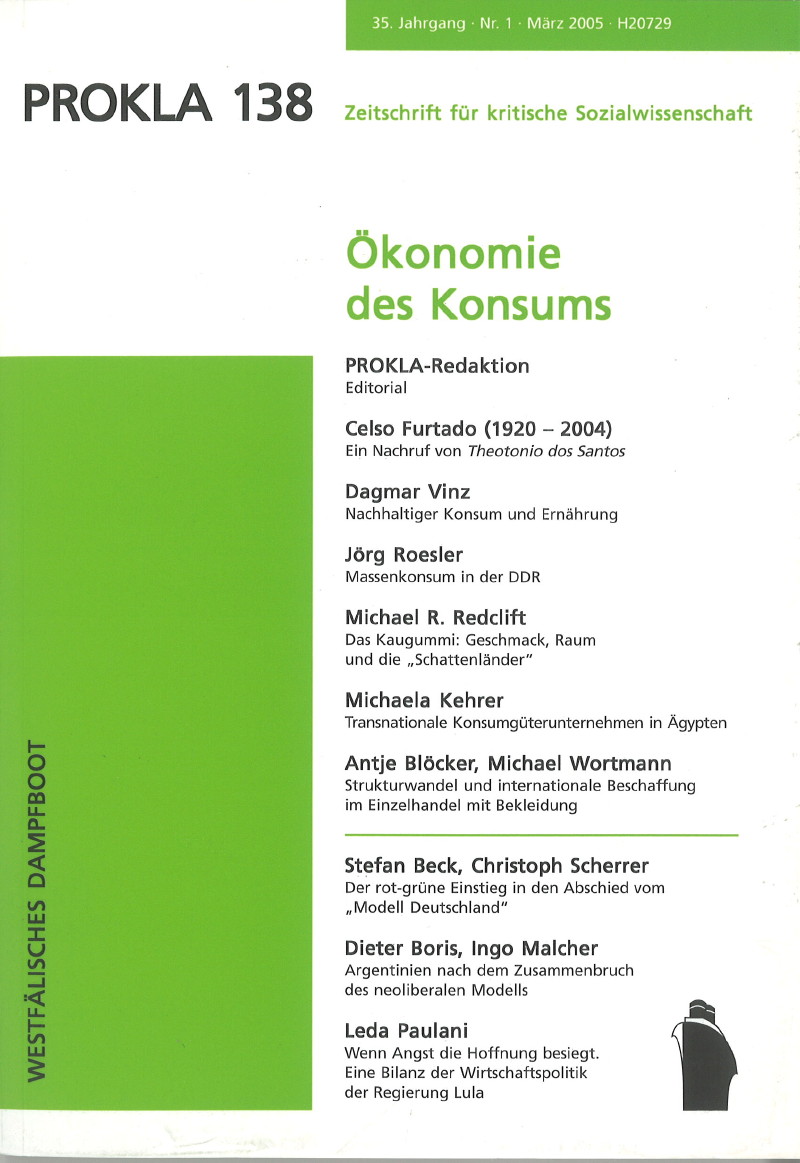Massenkonsum in der DDR: zwischen egalitärem Anspruch, Herrschaftslegitimation und „exquisiter“ Individualisierung
DOI:
https://doi.org/10.32387/prokla.v35i138.40Schlagworte:
DDR, Massenkonsum, Herrschaftslegitimation, IndividualisierungAbstract
Mass Consumption in the GDR. East Germanys communist party policy was directed to a steady increase of consumption from the low level after Second World War. The consumption patterns were not dictated by Marxist theory but by the shop window reality of West Germany. According to the wishes of the people – and Marxist ideas - the delivery of goods was comparatively equal to every citizen. In the 1980s both consumption policy goals could not be met any longer as a result of economic weakness and mounting indebtedness of GDR. This was one important reason, why the population turned its back to communism mentally - and in 1989 increasingly also physically. The GDR collapsed in 1990.






